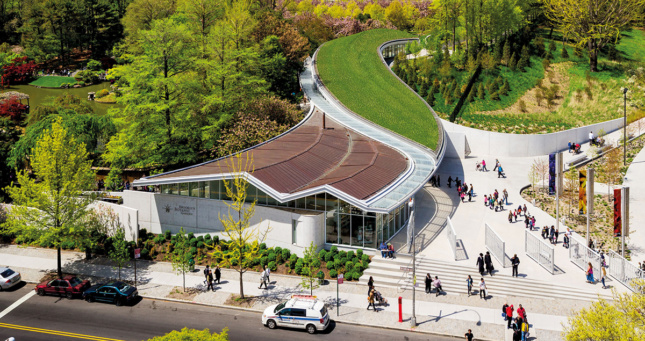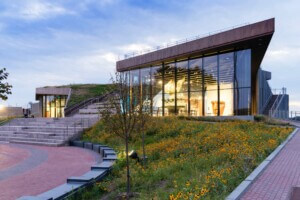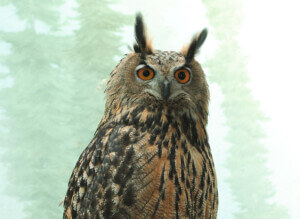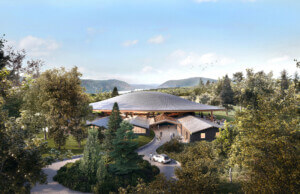In recent years, many architects have taken the initiative to design buildings, specifically mid- to high-rise glass buildings, with materials that help reduce bird deaths. It’s a major problem in the United States and one that people are becoming more aware of as recent studies show that hundreds of millions of migratory birds die each year from fatal window strikes.
Not only are firms like Studio Gang, KieranTimberlake, and Ennead keeping this top of mind, but Congress is too. This week Representatives Mike Quigley (D-IL) and Morgan Griffith (R-VA) reintroduced a bipartisan bill that would try to prevent bird collisions on new federal buildings. The Bird-Safe Buildings Act would require all public buildings under construction, as well as those acquired or altered by the General Services Administration, to feature bird-safe building materials and designs when at all possible.
“Almost one-third of all bird species in the U.S. hold endangerment status, which gives us the responsibility to protect birds from preventable deaths,” said Rep. Quigly in a statement. “By using materials that conceal indoor lighting to the outside, we can dramatically reduce the frequency of birds colliding with glass buildings. With birding activities supporting 620,000 jobs and bringing in $6.2 billion in state tax revenues, this is both an environmental and economic issues with a relatively simple, cost-neutral, humanitarian fix.”

The legislation would establish guidelines for public building projects and outline the types of materials most appropriate for glass-clad construction. Through the act, any use of plain glass would only be allowed on the first 40 feet of a building. Only 40 percent of plain glass could be integrated above that height.
This isn’t the first time a bird-centric bill has come to Congress. Quigly first brought it up to the House of Representatives in 2010 and has since spread awareness on the topic and advocate for bird safety as vice chair of the House Sustainable Energy and Environment Coalition (SEEC).
In addition to Quigly’s efforts, Senator and presidential candidate Cory Booker (D-NJ) also reintroduced a version of the bill, the Federal Bird-Safe Buildings Act of 2017, in the Senate earlier this month. Booker’s bill would require all new federal buildings or renovations be built with at least 60-to-90 percent of non-glass materials. Any glass used would need to be fritted, screened, shaded, or UV-reflective, according to Audubon Pennsylvania.
Both bills are backed by animal rights organizations, leaders in sustainable design, and national environmental groups. FXCollaborative, the National Audubon Society, the Lincoln Park Zoo, the Humane Society, and the U.S. Green Building Council, among others, support Quigley’s legislation.











